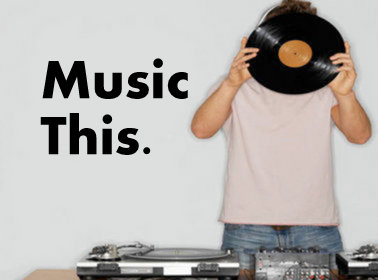Hey guys!
I am Lizzy Burkwald- avid music listener and recent researcher of the pirates invading the tunes we all love so much. After researching both sides I feel as though this topic is a double edged sword. You can weigh the benefits and pitfalls to being for and against music piracy- and what I feel it all comes down to is what means more to you as a music listener. As for myself- I feel music piracy allows for listeners to become acquainted with new music they wouldn’t have been exposed to pre-piracy days. Think of the Pandora’s and you tube vid’s out there- I don’t know if you would consider them music piracy- but I know I jam out to both and gather new music for free- from both. Through venues such as these I am able to expand my musical horizon- exploring music I come to love or hate. If I enjoy something enough I typically buy their songs, and ultimately become a fan that – as a concert enthusiast- will most likely pay to get in on a live performance. Ultimately this form of “music piracy” brought a once uninformed individual to a group or singer; and generated more money for the band than if I would have never heard their music in the first place. This story is a typical one- creating a platform where artists are receiving more exposure thus gathering a larger fan base. Music moves people- as does this topic. I just feel the power of music should be assessable to people looking to become acquainted with the old, new, and up and coming- which music piracy allows.
-Lizzy
Associated Costs of ‘Don’t Ask, Don’t Tell
15 years ago




This argument seems disingenuous to me. If not selling their intellectual property rights to a record company is truly beneficial for a band then why would a band do it? If it is beneficial then why are you, as a listener, not expected to respect the agency of those bands? Also, as I understand the current model both Pandora and (licensed) Youtube videos operate under the consent of the property holders and, as such, are not a violation of anyone's rights.
ReplyDelete